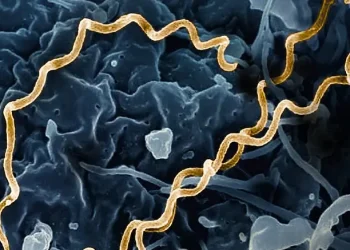Understanding the Dengue Threat
A new clinical trial supported by the National Institutes of Health (NIH) aims to assess an experimental treatment for dengue, a mosquito-borne viral disease.
This study, funded by NIH’s National Institute of Allergy and Infectious Diseases (NIAID), will involve exposing adult volunteers to a weakened strain of the dengue virus and administering an investigational therapeutic to evaluate its safety and effectiveness in reducing symptoms.
Rising Dengue Cases in the Americas
Dengue affects up to 400 million people annually, primarily in tropical and subtropical regions. In 2024, the Americas saw record-breaking dengue cases, with local transmission reported in U.S. states such as Arizona, California, Florida, Hawaii, and Texas.
Puerto Rico, where dengue is endemic, recorded nearly 1,500 cases last year. Although many infected individuals remain asymptomatic, severe cases can lead to internal bleeding, shock, and even death. Currently, there is no FDA-approved treatment for dengue.
Addressing the Treatment Gap
NIAID Director Jeanne Marrazzo, M.D., M.P.H., emphasized the urgent need for dengue therapeutics:
“When caring for a patient who is critically ill with dengue, healthcare providers have few options other than providing supportive care.
We must find safe and effective therapeutics to provide much-needed relief to people suffering from dengue.”
The AV-1 Monoclonal Antibody Trial
The clinical trial focuses on AV-1, an investigational monoclonal antibody developed by AbViro (Bethesda, Maryland). Previous Phase 1 trials demonstrated AV-1’s safety in humans, paving the way for this Phase 2 study.
- Study Sites: Johns Hopkins Bloomberg School of Public Health in Baltimore and the University of Vermont Vaccine Testing Center in Burlington.
- Participants: At least 84 healthy adults.
- Dosing Groups:
- One group will receive AV-1 one day before exposure to the dengue virus.
- Another group will receive AV-1 four days after exposure.
- Each group will be further divided into three dosage levels: 100 mg, 300 mg, and 900 mg.
- 12 participants per dosage group will receive AV-1, while two will receive a placebo.
Monitoring and Expected Outcomes
Participants will undergo close monitoring for 155 days to track immune responses, viral clearance, and symptom progression. The study will evaluate AV-1’s effectiveness in mitigating dengue symptoms and determining optimal dosage levels.
Earlier trials using a weakened dengue virus strain found that most volunteers developed mild symptoms, but none experienced severe dengue.
Future Implications
If AV-1 proves effective, further clinical trials may be pursued to establish its safety and efficacy in broader populations. For more details, visit ClinicalTrials.gov and search NCT05048875.
NIAID continues to support global research to prevent, diagnose, and treat infectious diseases. Visit the NIAID website for the latest updates on dengue and other health research advancements.
Sources: National Institutes of Health.









